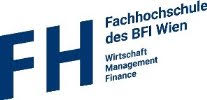Bachelor Programme European Economy and Business Management – University of Applied Sciences BFI Vienna
Vienna, Austria
Reviewed by ZeVa
- Valid from
- 01-02-2023
- Valid until
- 31-01-2028
Contact information
- Institution
- University of Applied Sciences BFI Vienna
- Website
- http://www.fh-vie.ac.at/
- Country
- Austria
Assessment report
0540 CeQuint EWUF FinalExecutive Summary
The bachelor programme in European Economy and Business Management (EWUF) (B.A.) was assessed by the expert panel on invitation by Central Evaluation and Accreditation Agency Hanover (ZEvA). ZEvA convened the panel which studied the self-evaluation report and undertook a site visit at the campus of the HEI in Vienna, the 22nd of June 2022. The procedure covered the three degree programmes “Quantitative Asset and Risk Management” (ARIMA) (M.A.), International Banking and Finance (M.A.) and EWUF, which is the subject of this assessment report.
First, the panel would like to compliment the HEI and all staff for their strong commitment to further develop the international and intercultural dimensions of the programme. All elements supporting these dimensions are adequately to more than adequately addressed in the programme. The panel was able to convince itself that the international spirit is indeed lived and continuously reflected at the HEI in order to improve internationalisation.
The panel found that the programme has clear internationalisation goals which are adequately documented and well suited to a bachelor’s programme in European Economy and Business Management. The goals are widely shared and supported by stakeholders both within and outside the programme. The panel notes that the goals include measures which undoubtedly contribute to the quality of teaching and learning. The panel likes to recommend that the standard evaluation form could integrate specifically questions that cover the quality of international and intercultural experiences made. Altogether the internationalisation goals are adequately operationalised in objectives which are verifiable to allow the monitoring of the achievement of these goals.
The panel therefore assesses Standard 1. Intended internationalisation as good.
The panel deems all underlying criteria of international and intercultural learning to be met. It is appreciated that the university has already taken the initiative to develop more sophisticated surveys to obtain further evidence on the extent to which the ILOs are achieved. It is evident that the HEI does not consider the ILOs merely as an add-on to traditional studies, but takes an integrated approach that includes many innovative approaches. The panel would like to recommend to put more emphasis on developing a quality cycle that measures the achievement, defines corrective measures once necessary and also follows up its impact and results. The Panel is convinced that the HEI will easily surpass this standard if it takes a more systematic approach to surveying graduates and evaluating them in the future.
The panel therefore assesses Standard 2. International and intercultural learning as satisfactory.
The panel found that the content and the structure of the curriculum provide effective means for achieving its international and intercultural intended learning outcomes. Thanks to UAS BFI Vienna successful collaboration with many partner universities and international companies, the programme is able to provide different options for students to make international and intercultural experience, suitable to their different contexts. In addition, the teaching methods are fitting and the learning environment provides suitable conditions for achieving the international and intercultural intended learning outcomes.
The panel therefore assesses Standard 3: Teaching and Learning as good.
The panel found the staff composition, staff experiences, knowledge and skills and services provided for staff members to be very much in line with the international and intercultural dimensions of the programme. The panel found the programme to surpass the generic quality for this standard. The programme goes beyond the acceptable level of attainment across the standard’s entire spectrum. The panel deems all the underlying criteria of this standard to be more than appropriately met. The panel found no shortcomings in any of the underlying criteria. To even further improve, the panel recommends to further diversify the composition of staff by integrating more people with foreign/intercultural backgrounds and to integrate the assessment of the appropriateness of staff’s international/intercultural sensitivity as part of student evaluations. The panel therefore assesses Standard 4: Staff as good.
The panel found that the university manages the heterogenous groups and cohorts of EWUF extremely well that all students can benefit. The “EWUF groups” are composed of different levels of English skills, different work experience, they may even study full-time or career- parallel – all groups have in common that they will gain an excellent internationalisation experience in particular by learning from each other. It is the group cross-over experience which is very well managed and in addition the opportunity to spend a semester abroad in combination with the acquisition of additional language skills (Russian, Spanish, French). An internationally recognised language certification is offered. The panel deems all the underlying criteria of this standard to be systematically surpassed. The panel therefore assesses Standard 5: Students as excellent. The panel therefore assesses Standard 5: Students as excellent.
To conclude, EWUF is a well-functioning international Bachelor programme and the panel advises the European Consortium for Accreditation (ECA) to award the Bachelor programme in European Economy and Business Management (covering all study options: in German or in English, in full-time or in career-parallel) of the University of Applied Sciences BFI Vienna (UAS BFI Vienna) the ECA Certificate for Quality in Programme Internationalisation.